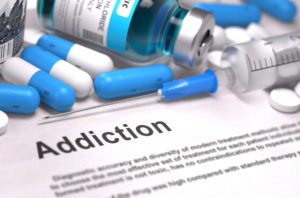Addiction | 4 min read
Detoxing from Alcohol and Drugs – Why Detox Is a Necessary First Step
Medically Reviewed By

On August 30, 2022
Written By
On August 7, 2020

The fear of alcohol and drug withdrawal is the number one reason why so many people avoid getting needed treatment help. Unfortunately, this fear only feeds the addiction problem. When left untreated, a mild to moderate substance abuse problem can quickly turn into a raging, full-blown addiction. So why is detox a necessary first step? Detoxing from alcohol and drugs helps you break the vicious cycle of substance abuse.
How Alcohol and Drugs Affect Your Mind and Body
Addictive substances, like alcohol, OxyContin, Ativan, heroin, and cocaine, all have psychoactive properties, meaning they can “blend in” with the brain’s chemical system. Many of these substances share similar chemical make-ups with the brain’s natural chemicals, which account for the feelings of euphoria, calm, and contentment they produce. But this is where the fairy tale ends.
Their ability to integrate with the brain’s chemical system also paves the way for dependence and addiction to take shape. Once physical dependence develops, the compulsive drug-using behaviors that result will lead to addiction unless drug use stops. Detoxing from alcohol and drugs works to break the body’s physical dependence on these substances.
Why Is Detox Necessary?
Physical Dependence
When you ingest an addictive substance frequently, your brain changes its chemical activities to accommodate the effects of the drugs. For instance, opioids produce their effects by forcing certain brain cells to release large amounts of neurotransmitter chemicals, such as dopamine, norepinephrine, and serotonin. With repeated opioid use, these brain cells will decrease the amount of neurotransmitters they naturally produce in response to opioid’s effects. These cells also become less sensitive to the drug’s effects, so, with continued use, increasingly larger doses must be taken to keep experiencing the desired “high” effects.
Since the brain is no longer producing normal levels of neurotransmitters on its own, it depends on an ongoing supply of opioids to keep things running normally. When opioid use decreases or stops, withdrawal symptoms, such as fatigue, restlessness, and irritability, develop because the brain has lost the ability to regulate the body’s functions without opioids. Since taking more of the drug will relieve these uncomfortable symptoms, doing so only strengthens the body’s dependence on the drug’s effects.
So why is detox necessary? This cycle of increasing dependence will only worsen unless drug and alcohol use stops.
The Addiction Cycle
After so many weeks or months of ongoing substance abuse, the damaging effects of drugs and alcohol start to warp the brain on a functional level. Areas that regulate thinking, emotions, and behavior start to become dependent on the drug’s effects differently. Dopamine (one of the neurotransmitters most affected by addictive substances) plays a critical role in the addiction cycle through its role in regulating the brain’s reward system.
The reward system forms your priorities and motivations and dictates your behaviors based on how much dopamine flows through it. Normally, brain cells secrete dopamine in response to experiences that make you feel good, such as eating, sex, and getting a job promotion. The reward system tracks these experiences and learns which behaviors produce positive feelings.
Since drugs and alcohol naturally raise the brain’s dopamine levels, the reward system quickly picks up on this relationship. Addiction develops as the reward system gets locked into the dopamine feed that results from substance abuse. In effect, the addiction cycle mirrors the body’s cycle of physical dependence, only it takes place inside your mind. Drug alcohol detox nips the problem in the bud by cutting off the dopamine feed.
Types of Detox Programs
Inpatient Detox
Inpatient drug and alcohol detox takes place in a hospital setting. These programs treat the most severe addiction problems, providing round-the-clock care and monitoring. With severe conditions, chronic medical problems, such as diabetes or heart disease, co-occur alongside addiction. For alcohol and opioid addictions, in particular, medication-assisted treatments can be used to treat severe withdrawal episodes. Inpatient detox stays vary from two weeks to three months, depending on the severity of the addiction.
Residential Detox
Residential detox takes place in treatment facilities specializing in treating severe to moderate addiction problems. These programs treat withdrawal symptoms and also begin the process of helping you recognize addiction’s effects on your life. Programs lengths run anywhere from two weeks to a couple of months.
Choosing the Detox Program That’s Right for You
Substance abuse and addiction affect different people in different ways, so it’s important to pick the detox program that’s best equipped to meet your treatment needs. You can get a good idea of what type of program will work best for you by looking at the problems drugs and alcohol cause in your day-to-day life. At this point, the question, ‘why is detox necessary’ becomes ‘which detox program can help me take back control of my life.’
As a general rule, the more problems and chaos substance abuse causes, the greater the need for a highly structured detox program, such as inpatient or residential care. For example, if you’ve lost your job, developed a serious medical or mental health problem, or have gone through detox one or more times, an inpatient or residential program is best equipped to help you make it through the detox stage. Otherwise, outpatient detox should only be considered if you can still manage your daily life independently, such as holding down a job and maintaining a household.
The important thing to remember is a substance abuse problem will take on a life of its own when left to its own devices. Detox is a necessary first step toward breaking the vicious cycles of dependence and addiction. As difficult as stopping drug and alcohol abuse may seem, it can be done when you have the level of support you need.
If you or a loved one are in the throws of addiction and seeking a drug or alcohol rehab center in Connecticut or New York, call Ascendant NY anytime for compassionate, confidential help. We also offer an IOP program for alcohol addiction and drug addiction. At our New York treatment facility, you can start your life of sobriety and find new meaning and purpose.
Was this article helpful? Follow our blog for more information about addiction, substance use, and how to get help. Recent posts include topics such as how to find the best alcohol and addiction treatment services in New York.
Ascendant New York Editorial Guidelines
Here at Ascendant New York, we understand the importance of having access to accurate medical information you can trust, especially when you or a loved one is suffering from addiction. Find out more on our policy.
- Sherman C. Impacts of Drugs on Neurotransmission. Published March 9, 2017. Accessed August 30, 2022. https://archives.drugabuse.gov/news-events/nida-notes/2017/03/impacts-drugs-neurotransmission




